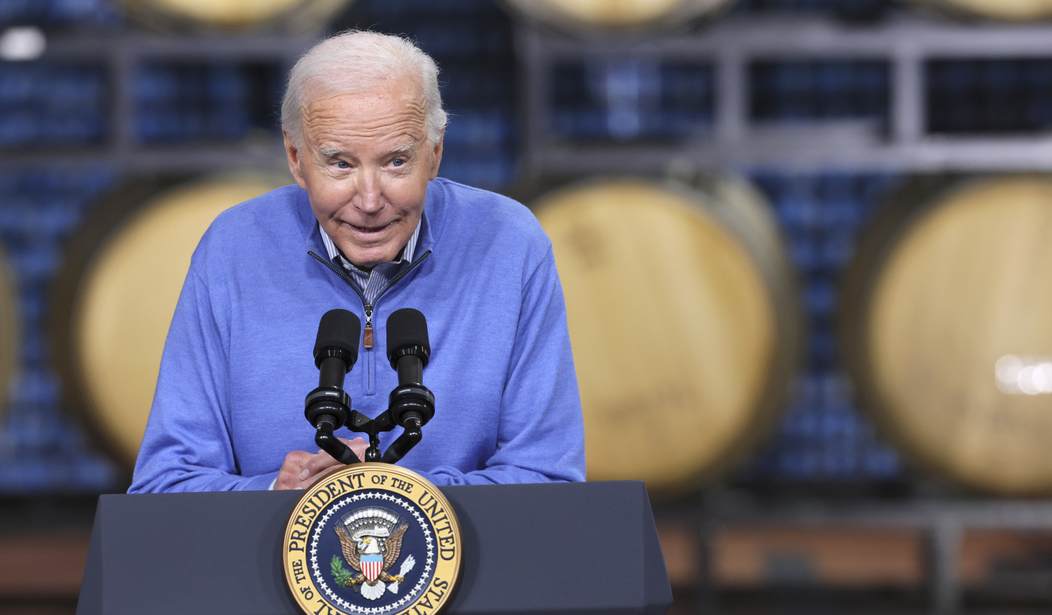Anyone that’s ever had to sell or negotiate anything can attest to the fact that believing in what you’re bringing to the table is the most important thing. If you and your team don’t believe in the product, service, or concept. then the people that you’re dealing with will not either.
One thing his haters always overlook is that Donald Trump brought a lifetime of business acumen with him. Negotiating is in his blood. He understands that in a negotiation there will always be some give and take, but there are also certain things which are non-negotiable. Knowing what those items is essential for successful negotiations.
When it came to trade, Trump and his team fashioned more successful trade agreements than any administration in history. Their “America First” policies were unabashedly clear, and their methods were focused. Trump and his team left no doubt that he was the president of the United States and that he was there to represent our country’s best interests. Despite that, the press would incessantly ridicule his methods instead of praising the results. KORUS (Korea/US), where the changes were subtle but effective, the Middle East, Saudi Arabia, India, Japan, European energy deals, massive changes with China, new Ag agreements, technology sector investment back in the USA, and the successful renegotiation of NAFTA (Canada, Mexico, USA) into the USMCA all strengthened America and our nation’s economy. In fact, Trump’s policy shift created the framework for the largest domestic expansion of the U.S. economy, evident in every 2019 economic metric until the pandemic disrupted everything.
So, when Biden took office, agreements were in place. As things began to return to normal, trade should have followed. However, Biden’s Office of the United States Trade Representative (USTR) is crumbling. The left's agenda of trying to force the “Green New Deal” policies into every agreement is proving to be a disaster. It seems that despite their vocal support of these pie-in-the-sky energy fallacies being endlessly pushed by western leaders like Biden and Trudeau, the WEF, and every breathing elite globalist, our international trade partners are saying "thanks, but no thanks" to these economic anchors.
Besides the poor message, it seems that, according to some, the leader of the group, Katherine Tai, is about as warm and cuddly as a cactus. A story surfacing in Politico highlighted the ineffectiveness of the group’s efforts, as well as strife within the group that has resulted in members heading to the exits.
The article talks about the fact that more than a half dozen senior trade officials have vacated the group according to four sources who have knowledge of the departures. It seems that the “White House’s” point person on international economics is one of those that have gone AWOL. In addition, two of the three deputy U.S. trade representatives responsible for implementing the Biden administration’s “worker-centered” trade policy have also left.
The lack of progress has resulted in a purely political move. In anticipation of the Trump campaign highlighting the trade failures, some negotiations have been placed on hold. That anticipated spotlight is also another reason why some believe the exit sign looked so appealing.
Senate Finance Chair Ron Wyden (D-Ore.), whose committee oversees trade policy, believes that the people leaving “certainly raises questions” about the trade agenda, stating, “[T]hey’ve lost a lot of people, a lot of good people.”
Other critics lay the blame at the feet of Tai, saying she has not built enough goodwill with other members of Biden’s team to effectively implement the trade agenda. That, they say, has led to conflicts with other parts of the administration, like ongoing disagreements with the National Security Council over digital trade negotiations at the World Trade Organization.
“She’s really tough on people, and she hasn’t figured out a way to have relationships in other parts of the administration, which is how you do your job,” said one official familiar with the staffing issues. “The morale problem is more about that than anything else. Other agencies aren’t having these kinds of departures.”
Naturally, Tai’s supporters continue to back her with the same mind-numbing excuses that KJP brings to the podium in her defense of Biden. In spite of the defections and obvious failures in “agenda objectives,” a spokesperson for the trade representative’s office said this: “Three years on, there has been a robust continuity among staff members at USTR, with an impressive number still proudly working alongside the ambassador despite the rigors and sacrifices that come with public service. Ambassador Tai has complete confidence in her team’s ability to deliver on the President’s international economic agenda, one that positions the U.S. to compete and win on the global stage while putting American workers at the forefront of our trade policies.”
Another Tai ally, the always trustworthy Sen. Elizabeth Warren (D-Mass.), had this to say: “Katherine Tai follows through on President Biden's directive that our trade policy must be employee-centered and focus on more investment here in the United States, particularly in growing our manufacturing base. It's no surprise that people who spent their entire careers trying to row the boat in the opposite direction are not happy. With where the office goes now, it's pretty hard for departing staff to go out and say that their problem is based on policy, and a lot easier to claim that they are leaving for other reasons. So, I’m just not buying it.”
That said, Biden’s “worker-centered” trade agenda was designed politically to smooth over frayed relations with trading partners and also to attempt to win back blue-collar workers in battleground states. However, his ill-advised plans to reshape global trade rules haven’t alleviated any concerns from Democrats who worry that Trump will once again use trade issues as a hammer against them in the Midwest, a section of the country that could determine control of both Congress and the White House in November's elections. Biden’s policies, combined with the personnel issues, are bringing to light that Trump’s America First policies accomplished their goals.
That disconnect has forced USTR to freeze, abandon, or dramatically scale back its signature initiatives and negotiations, leaving some lawmakers and staffers frustrated. In particular, both Wyden and Sen. Sherrod Brown (D-Ohio) are outraged that this administration hasn’t come close to matching the Trump administration’s accomplishments on trade, like the binding labor and environmental standards that Democrats got inserted into the rewrite of NAFTA, which Trump signed in 2020.
“Sen. Brown and I have consistently said that you need the kind of proposal that you saw in the U.S.-Mexico-Canada Agreement where you open up markets for business and you have tough enforcement,” said Wyden, “and a lot of what's been put up doesn't meet that test.”
Trade is an essential part of any country’s economy. Trump consistently made America’s needs his priority. The Biden administration seems disinterested in America and more determined to satisfy a personal and far-left agenda. The results aren’t coming in, and the rats are abandoning the ship. The question is: Will the American public become aware or be misled heading into November? America needed strong leadership after Obama in 2016, and that need is ten-fold now.









Join the conversation as a VIP Member